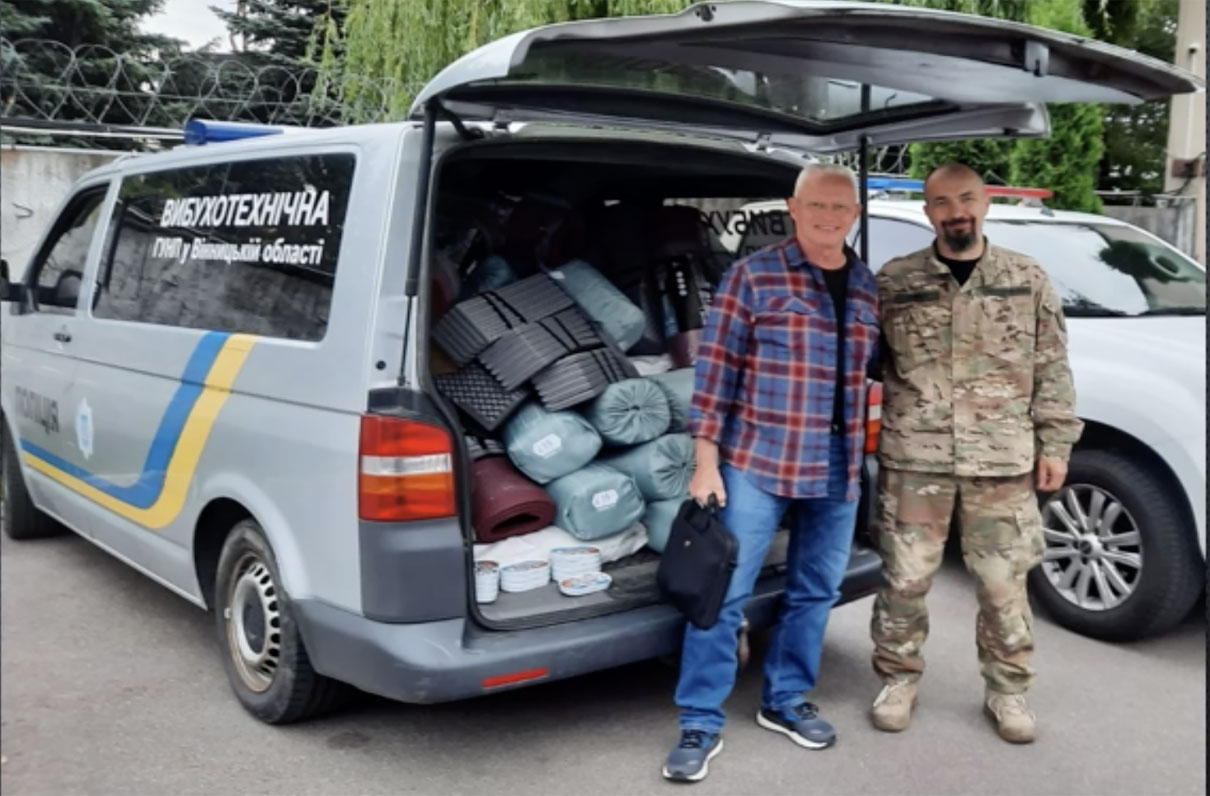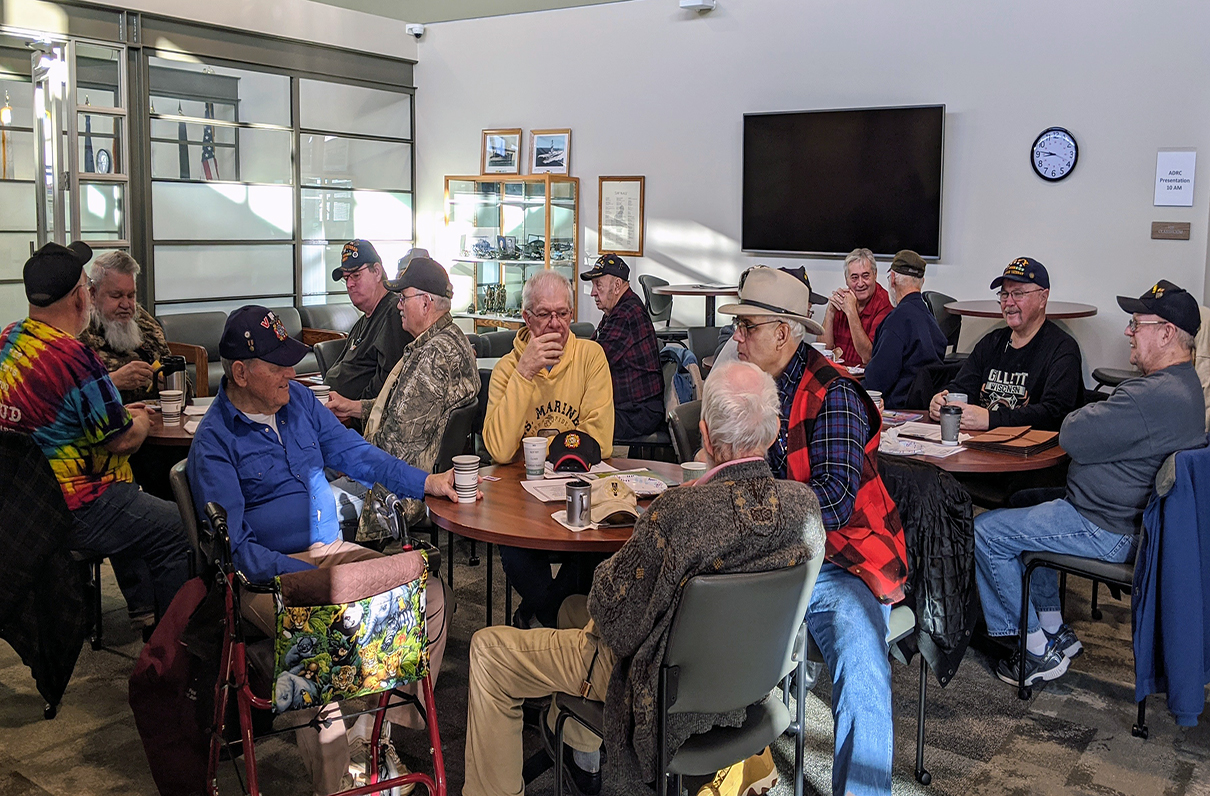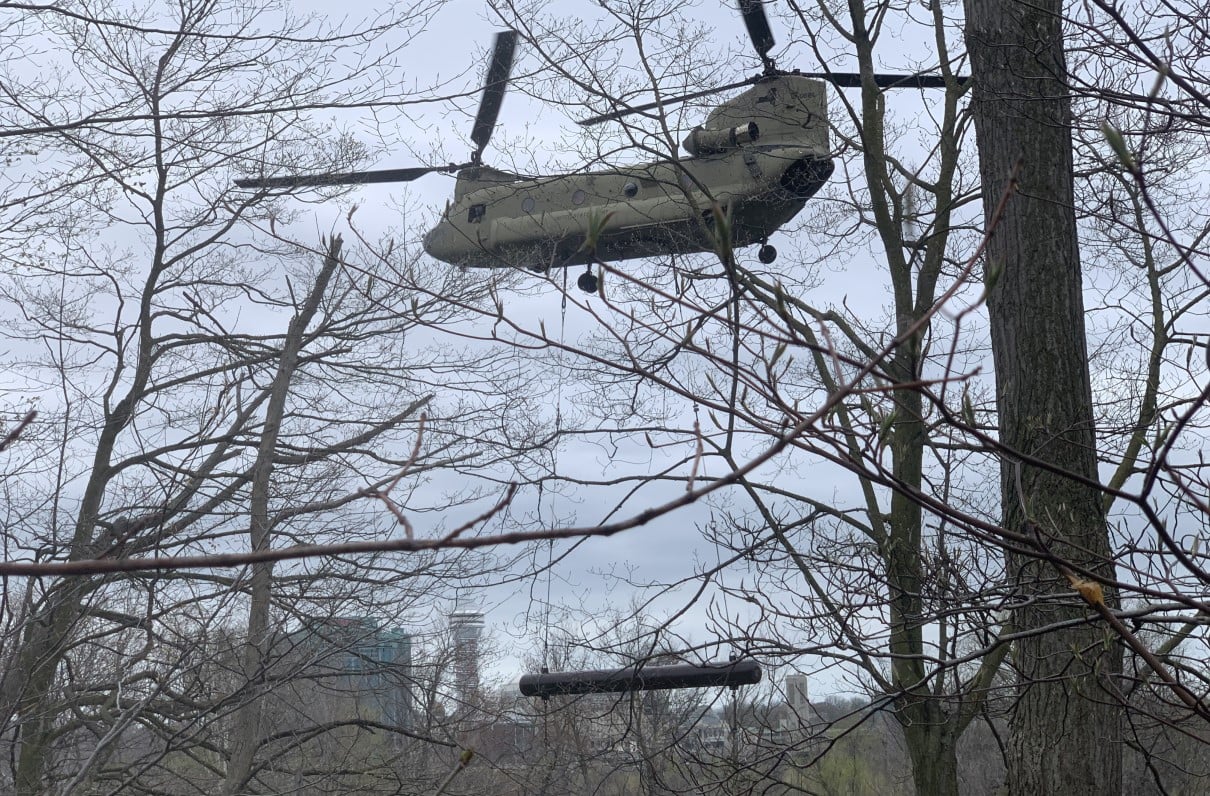By Contributing Editor Blair Drake
After the Russian invasion of Ukraine began in late February, millions of Ukrainian refugees crossed the borders into neighboring countries. Moldova, which is just slightly larger than the state of Maryland and is bordered by Ukraine to the north, east, and south, received the highest number of refugees per capita. More than 460,000 refugees have crossed into Moldova since the start of the war.
The Moldova World Children’s Fund (MWCF), founded by Capt. Ray West, USN (Ret), a member of the Western North Carolina Chapter, quickly jumped into action to support the displaced Ukrainians.
He founded the organization in 1998, after providing humanitarian assistance to Moldova while serving as a U.S. European Command projects manager. MWCF’s aid to Moldova focuses on constructing and renovating buildings and infrastructure; enabling urgent surgeries and critical medical care for desperate individuals; providing educational support in the form of establishing computer labs, donating classroom textbooks and materials, and supporting deserving students with tuition and living expenses helping to motivate them to continue their education beyond grade school; and contributing humanitarian aid to hospitals, schools, orphanages, community centers, hospice, farmers, and other needy persons.
“Because we have a team on the ground on a regular basis in Moldova, when the bombs and missiles came down on Ukraine, we were able to empty out warehouses of blankets, clothes, and wheelchairs to set up refugee centers,” said West, who travels to Moldova several times a year.
His team worked with other partners in getting solar panel units so refugee centers would have electrical power as well as with the Moldovan government to receive and install Starlink satellites so refugees could have mobile phone connection back to family back in Ukraine. They also helped install mobile toilet and shower buildings.
Then, West said, MWCF decided to expand its support to troops on the frontlines in Ukraine.
“We started getting food to the people, especially in the forms on high-nutrition food bars, canned meats, and pork and beans,” he said. “We’ve been taking food into Moldova in big trucks to our storeroom, and then we send them into the country on small civilian trucks, so they aren’t military targets.”
Members of the Western North Carolina Chapter held a fundraiser in April to help purchase explosive ordnance kits for bomb techs in Ukraine, recommended by Lt. Col. John Culp, USA (Ret), a chapter member who has been volunteering in Ukraine with Bomb Techs Without Borders.
[RELATED: MOAA Member Assisting With Training, Growing EOD Teams in Ukraine]
In the summer, West delivered additional gear and supplies to Ukraine, including dog food for the canine units.
While in Ukraine, he was struck by the brutality of the conflict.
“I would say 9 out of 10 of the Russian targets I saw were civilian targets — apartment buildings, homes, schools, businesses, hospitals, cultural centers,” he said. “Rules of engagement got thrown out the window, especially when the Russians were retreating.”
But, he said, “I think there’s hope. I see these civilian Ukrainians who have never picked up a rifle. They took their families to the borders … turned around and went back to fight. The Russians have miscalculated big time the resolve of the people [and] the resistance and the effectiveness of the military.”
In the meantime, West urges others to do what they can to support the Ukrainians, especially the displaced children.
“People can contribute,” he said. “They can encourage elected officials to support Ukraine. They can donate money. A hurting child is a hurting child wherever they call home.”
Blair Drake is a contributing editor for MOAA and lives in Souderton, Pa. She previously served on the editorial team of Military Officer magazine for nine years.


